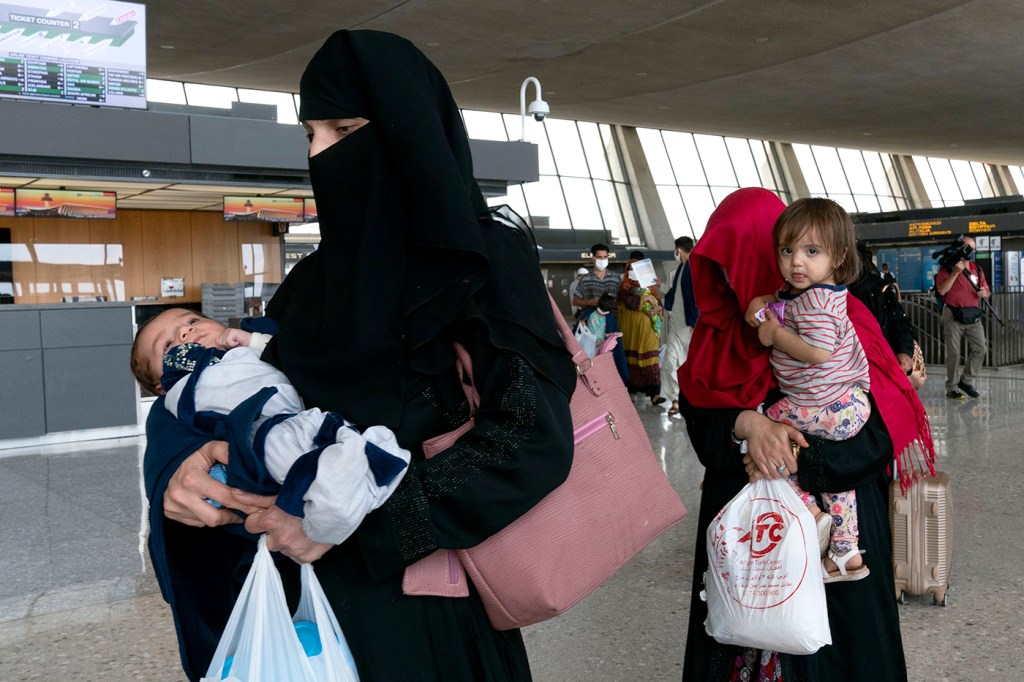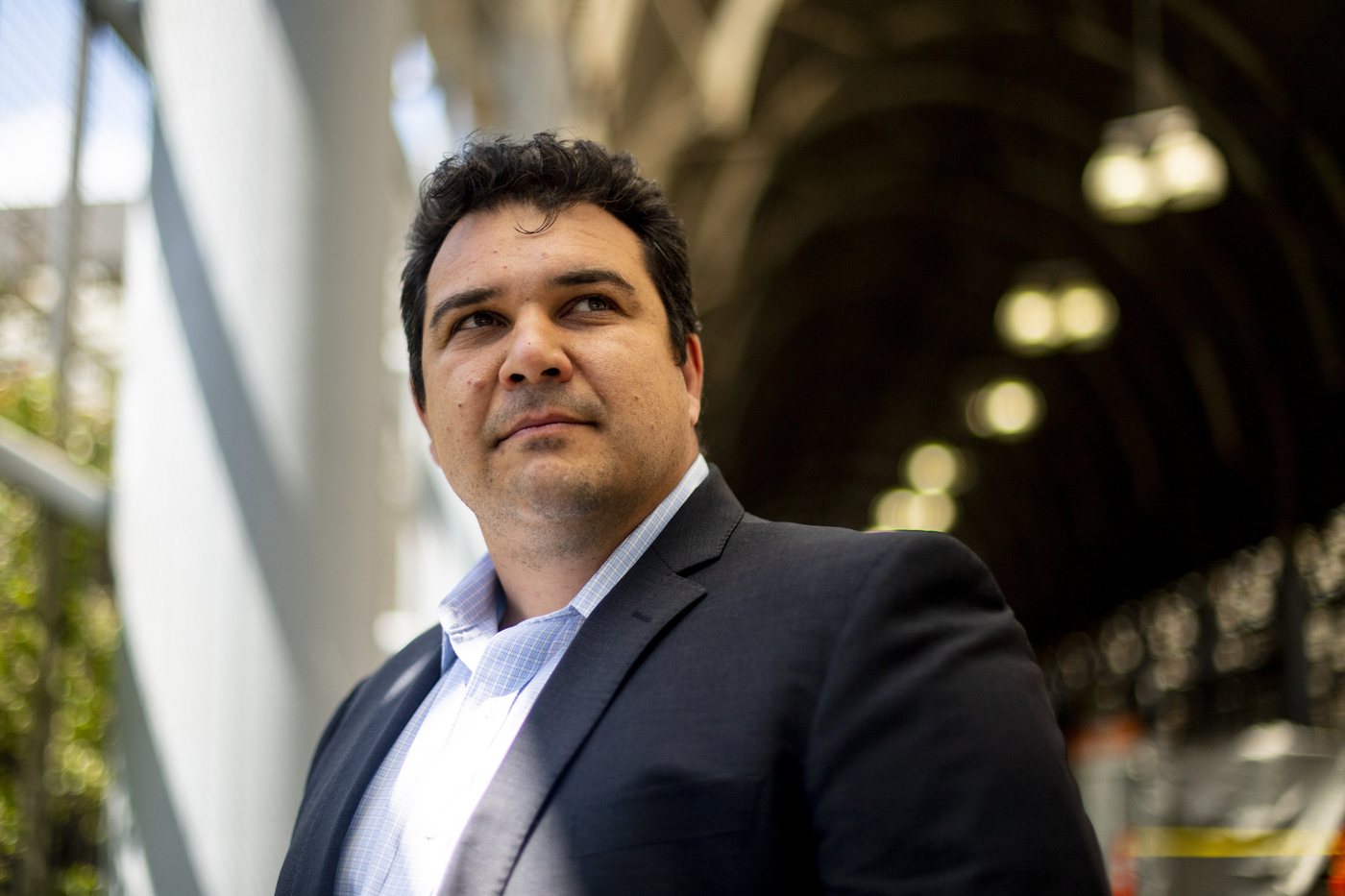A primer on escaping from Afghanistan

In the early days of the U.S. evacuation from Afghanistan, Americans and allies were urged to find their way to the lone available airport in Kabul, the capital, as quickly as possible. But the large crowds that have gathered around the airport—including Taliban guards—have forced a change in strategy, says Khushal Safi, who heads the international safety office at Northeastern and is an Afghan native.
“Late last week, the U.S. Embassy started telling people to go to different staging areas around the city,” Safi says. “At one of these staging areas, you can gain access to a convoy that will get you to the airport.”

Khusal Safi, associate director of public safety and security at Northeastern. Photo by Ruby Wallau/Northeastern University
Safi oversees the safety of members of the Northeastern community as they travel around the world. Fortunately, he says, no one associated with Northeastern is known to be in Afghanistan. But he has been sharing information with other universities to help get their people out of the country.
Groundwork and preparation are crucial to crisis evacuations, says Safi, who worked in Afghanistan from 2009 to 2014 as a U.S. intelligence officer.
“It’s about having tons of resources, knowing people in different areas, and making sure that you have multiple evacuation points if you have to go,” Safi says. “You shouldn’t just rely on one mode.”
In Afghanistan, however, the airport appears to be the lone point of departure—unless the U.S. is able to negotiate other means of evacuation, as Safi suggests.
In a follow-up to his interview last week about the collapse of the Afghan government, Safi spoke with News@Northeastern about the ways and means for evacuating people from Afghanistan. His comments have been edited for brevity and clarity.
The Taliban has said that the U.S. must be out of Afghanistan by Aug. 31. Is there a chance that the deadline will be extended?
There might be some wiggle room in there, but probably not much.
The Taliban wants to exercise their sovereignty over the country, and having a foreign force still present within the country’s borders is going to diminish their ability to rule the way they want to rule.
How are people using the staging areas in Kabul to reach the airport?
One of those staging areas is at the Kabul Serena Hotel.
There’s a large group of international folks staying there; that’s where the Taliban is holding its daily press conferences. So the Taliban have their own security personnel there forming a protective ring around the hotel and keeping tabs on people coming and going. And then you have organizations like CNN and BBC with their own security personnel at the hotel. All sides are working with each other and their respective embassies to facilitate movement to the airport.
Are there other ways to escape besides going through the staging areas?
Not many. There are local vendors—security providers—that are able to locate somebody and bring them through to the airport—or even to locate somebody within the crowd outside the airport. But those methods are becoming less and less likely, because the situation is becoming more and more desperate.
Are Afghans who have collaborated with the U.S. being allowed to leave via the convoys?
As of right now, we’ve heard that multiple convoys of folks that have assisted the U.S. government and the International Security Assistance Force (ISAF) gain access to the airports. We have also heard of U.S. visa holders, such as international students, using the staging areas to gain access to the airport and departing on evacuation flights.
Are Afghans being held at the airport so that Americans can escape first?
If you’re able to get to the airport, prove that you have a visa or other paperwork authorizing you to depart, and there are available seats on a departing flight, then people are leaving.
Now, if you have 400 American citizens, 400 Afghan interpreters, and only 400 seats on a flight, then American citizens are going to get on that plane ahead of the Afghan interpreters. Which means, as this continues, there’s going to be a point where hard decisions are going to have to be made.
How frightening must this be for people who are trying to flee the country?
Three or four weeks ago, most people were just going about their lives, and it seemed like a fairly routine situation. It was as though people were lulled into a false sense of security. And then everything crumbled. That’s why you have a plan: Because you should always be anticipating the worst-case scenario.
How did you develop these evacuation skills?
I learned from getting myself out of some of these places (laughs).
Some of the training that the U.S. government has given me, along with the work that I’ve done, has taught me how to help others. You learn that sometimes you don’t come out the same way you came in.
Are you confident that most or all Americans will be out of Afghanistan by Aug. 31?
I think the majority of Americans will get out. The Biden administration is basically saying they’re not going to leave until all Americans are out, though they can’t guarantee that they’ll be able to find every single American.
For all of the problems that the Biden administration has had, I have to say that they’ve moved serious resources to address this situation and they’re moving people out really fast. Could they have done a better job? Absolutely. But since the situation has come into full focus, the U.S. military and its NATO partners have thrown every resource at this.
In fact, private companies, such as United Airlines, Atlas Air, and Lufthansa, are sending planes to move U.S. citizens and Afghan refugees to third-country holding areas. This is freeing up U.S. military resources to continue flying in and out of Afghanistan.
A big takeaway is that, when pressured, the U.S. military and private organizations respond. I want to take a moment to acknowledge the amazing work of the U.S. Department of State’s Overseas Security Advisory Council (OSAC). OSAC brings together U.S. public and private sector organizations to support U.S. business throughout the world. In the case of Afghanistan, OSAC sends out daily announcements regarding the evacuation and connecting members with resources. They are a valuable ally in these difficult times.
Are there other ways out for people who aren’t in or near Kabul?
It can happen if the U.S. government and the international community are able to use leverage to put pressure on the Taliban and Afghanistan’s neighbors, in particular Pakistan, to open the borders and allow refugees to depart. This might offer another means for moving people a little bit faster.
For example, if the Pakistani border were open, U.S. or international observers force on the Pakistani side would be able to verify people as they’re coming across that border. That would create another evacuation point for people who aren’t in Kabul.
For media inquiries, please contact media@northeastern.edu.






